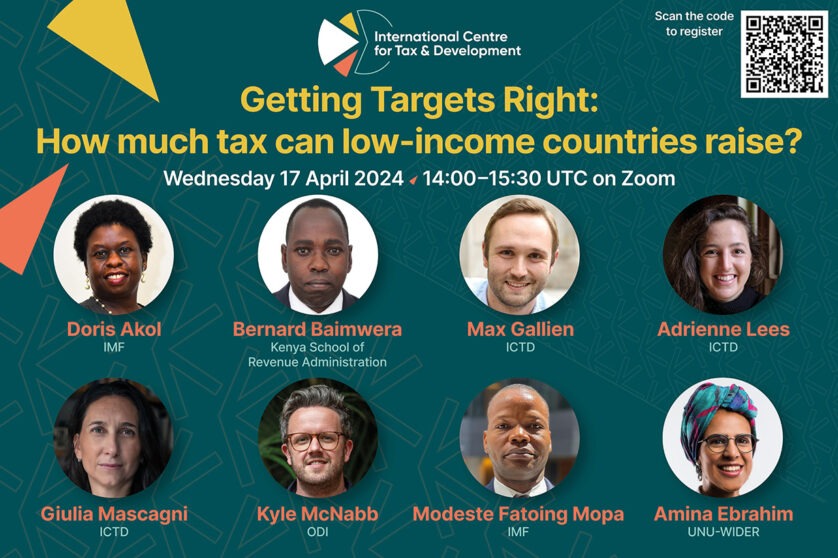Lower-income countries have huge financing needs. While tackling the climate challenge and achieving the Sustainable Development Goals require substantial capital investments, the Covid-19 pandemic has highlighted an urgent need for spending on health and social protection. With the costs of debt rising, how much more tax can developing countries raise has become a key question.
Recent years have seen some highly ambitious estimates, including a recent IMF paper that suggested a potential rise of 9% in tax-to-GDP ratio. But thinking of this as achievable in the medium term is unrealistic. Broad statements on tax-to-GDP ratios, like those advocated in the IMF publication, are not only methodologically dubious but can actively undermine the goals they are supposed to achieve.
Our latest ICTD policy brief argues that many of these optimistic projections tend to miss a key aspect: time. This then has implications on financing development and tax policy and administration. Drawing from these arguments, a panel of researchers and practitioners are set to discuss whether optimistic tax targets are helpful or hurtful, and how we can make them better.
The webinar is organised on the sidelines of the IMF Spring Meetings 2024, where various stakeholders, including finance and development ministers and policymakers, are set to discuss the world economic outlook and other issues of global concern.
Speakers
- Giulia Mascagni (Chair), ICTD
- Max Gallien and Adrienne Lees (presentation), ICTD
- Doris Akol, International Monetary Fund
- Bernard Baimwera, Kenya School of Revenue Administration
- Kyle McNabb, ODI
- Modeste Fatoing Mopa, International Monetary Fund
- Amina Ebrahim, United Nations University World Institute for Development Economics Research (UNU-WIDER)
